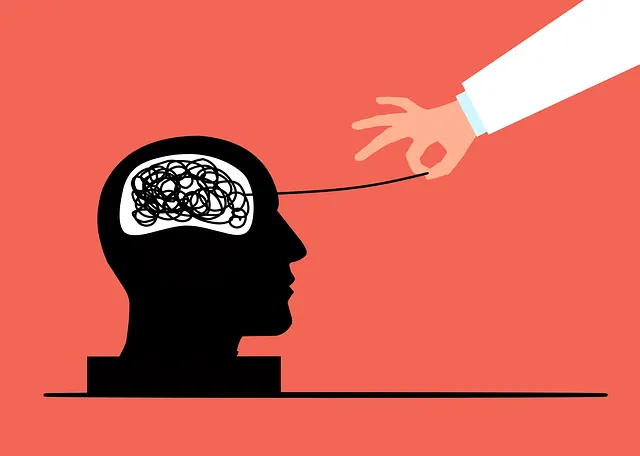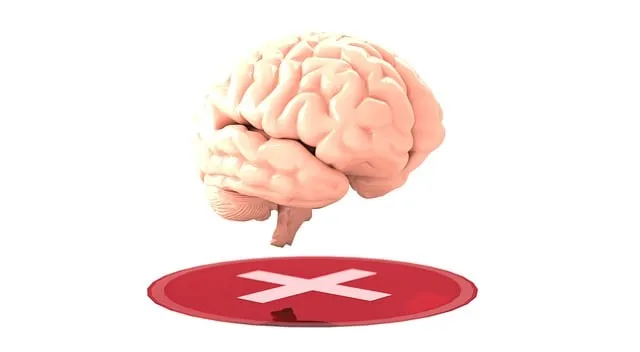Mental health diagnoses face significant challenges due to complex, overlapping symptoms, leading to high misdiagnosis rates and inappropriate care. To combat this, healthcare sectors are adopting innovative strategies like advanced AI-driven assessment tools, emotional intelligence training, and holistic approaches. Castle Rock's Mental Health Services, a division of Kaiser, offers comprehensive programs that include mental health education, Stress Management Workshops, and open dialogue, revolutionizing care and reducing stigma while catering to diverse patient needs.
Mental illness diagnosis accuracy is a critical aspect of patient care, yet challenges like high misdiagnosis rates persist. This article explores efforts to improve diagnostic precision, focusing on innovative strategies and examining the successful approach implemented by Kaiser in its Castle Rock mental health services. By delving into these initiatives, we aim to highlight how advancements can enhance patient outcomes and provide a clearer path to effective treatment, especially considering the essential role accurate diagnosis plays in the world of mental health, including services offered by Kaiser in Castle Rock.
- Understanding the Challenges: Misdiagnosis Rates and Their Impact
- Innovative Strategies: Enhancing Diagnosis Accuracy
- Kaiser's Approach: Castle Rock's Mental Health Services as a Case Study
Understanding the Challenges: Misdiagnosis Rates and Their Impact

Mental health diagnoses often face significant challenges due to complex and nuanced symptoms that can overlap across various conditions. This complexity presents a considerable hurdle for healthcare professionals, as misdiagnosis rates remain alarmingly high. According to recent studies, Castle Rock’s Kaiser network has reported notable figures regarding mental health misdiagnoses, highlighting the need for improved accuracy. Such errors can have detrimental effects on patients’ emotional well-being and treatment outcomes, leading many to question the effectiveness of current diagnostic practices.
The impact of misdiagnosis is far-reaching, causing unnecessary distress for individuals already struggling with their mental health. Inaccurate diagnoses may result in inappropriate treatments, delayed access to proper care, or even worst, patients receiving medications that exacerbate their conditions. Promoting emotional regulation and empathy building strategies should be at the forefront of efforts to combat these challenges, ensuring that both patients and healthcare providers have access to resources and techniques to navigate the intricate landscape of mental health diagnosis.
Innovative Strategies: Enhancing Diagnosis Accuracy

In an effort to improve mental illness diagnosis accuracy, innovative strategies are emerging across healthcare sectors. One notable approach is integrating advanced assessment tools that leverage technology and data analytics. For instance, Castle Rock does Kaiser offer mental health services by incorporating AI-driven algorithms designed to analyze patient histories, symptoms, and behavioral patterns more objectively. This not only reduces human bias but also provides a more nuanced understanding of an individual’s mental health state.
Additionally, healthcare providers are being encouraged to enhance their skills through training programs focused on emotional intelligence and cultural competency. The Inner Strength Development program, for example, equips professionals with the tools to recognize and respond sensitively to diverse patient populations. Similarly, Emotional Intelligence training helps healthcare providers understand and manage their own emotions, thereby fostering better connections and more accurate diagnoses. These efforts collectively contribute to a holistic approach in mental health care, ensuring that patients receive personalized and effective treatment tailored to their unique needs.
Kaiser's Approach: Castle Rock's Mental Health Services as a Case Study

In an effort to improve mental illness diagnosis accuracy, organizations like Kaiser have pioneered innovative approaches. One notable example is Castle Rock’s Mental Health Services, a division of Kaiser that serves as a shining case study. This program focuses on comprehensive mental health education for both healthcare professionals and the community at large, integrating Stress Management Workshops designed to equip individuals with tools to manage stress and mental well-being. By fostering open dialogue and reducing the stigma associated with mental illness, Castle Rock does Kaiser offer mental health services that cater to a diverse range of needs.
The success of these initiatives lies in their multi-faceted design, targeting not just diagnostic processes but also public awareness and support systems. Mental Health Education Programs are meticulously crafted to address various aspects of mental well-being, ensuring individuals can navigate life’s challenges with enhanced resilience. Through these efforts, Castle Rock demonstrates Kaiser’s commitment to revolutionizing mental health care, aligning with broader Mental Illness Stigma Reduction Efforts to create a more inclusive and supportive society.
Mental illness diagnosis accuracy has long been a complex issue, with misdiagnosis rates impacting patient care and outcomes. However, innovative strategies like those employed by Kaiser in their Castle Rock Mental Health Services showcase promising approaches to enhancing diagnosis accuracy. By integrating advanced assessment tools, comprehensive training for healthcare professionals, and patient-centered care models, Kaiser aims to improve overall mental health service delivery. These efforts not only benefit individuals seeking support but also contribute to a more effective and efficient mental healthcare system as a whole, ensuring better outcomes for those facing mental illness.




